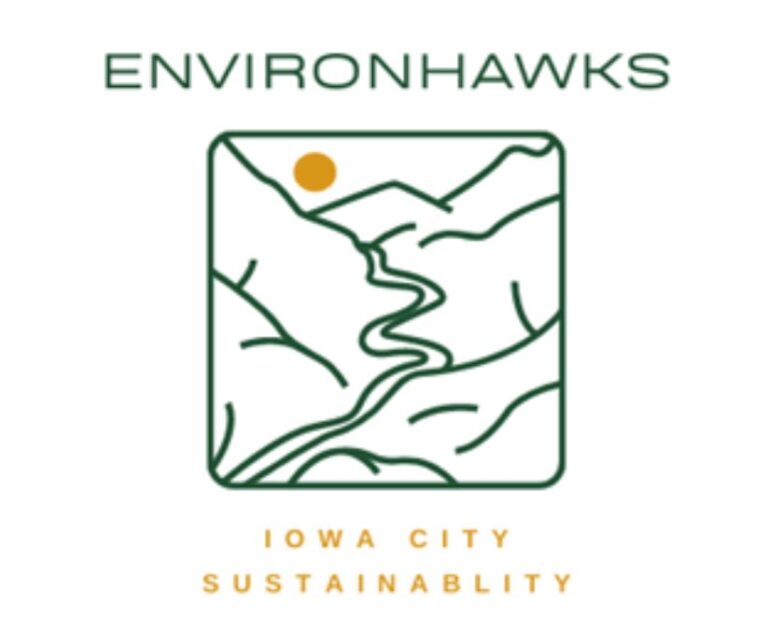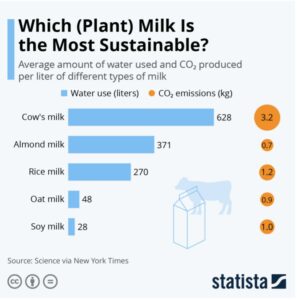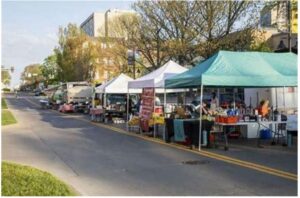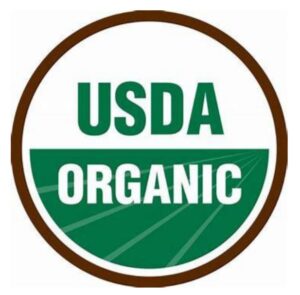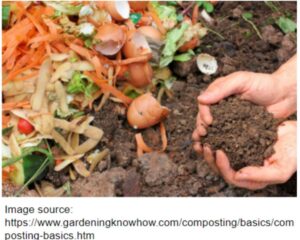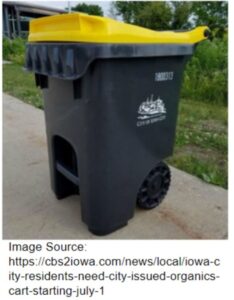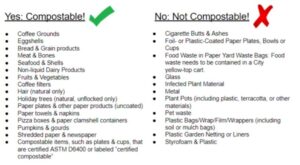Author: Laura Evans
To conclude the discussion of sustainable practices around food, the EnvironHawks chose to spotlight a local vegan restaurant; the Trumpet Blossom Café. Its owner and head chef, Katy Meyer, has a passion for creating delicious dishes using sustainable practices. Meyer is an inspiration both as a creator of tasty vegan meals, and as a female business owner. She sets an example of courage and tenacity for others to look up to as they consider stepping into the risky world of entrepreneurship. In the interview below, Chef Katy Meyer shares how Trumpet Blossom Café came into being, several ways her restaurant implements sustainable practices, and how community members can both practice sustainability and support local businesses who do!

What’s the story of Trumpet Blossom Café?
KM: I opened Trumpet Blossom Café as the sole proprietor in April 2012. Prior to that I was co-owner of The Red Avocado from 2005-2012. The Red Avocado was a vegan restaurant in Iowa City; I was a chef and co-owner but was not one of the founding owners. It was open from 1999-
2012 and we had to close in January 2012 because the building we were in was sold and torn down (it was in a house on Washington St. where the building that DP Dough is currently.) My business partners wanted to do other things, and I wanted to continue in the industry so I secured a new location and opened Trumpet Blossom Café as a full service restaurant, bar, and venue three months after The Red Avocado closed.
What does sustainability mean to you?
KM: Sustainability, within a business model, is operating by making conscious decisions taking into consideration more than just the bottom line. It is a way of doing things that is gentler on the environment and more harmonious with the physical and social surroundings in which the business exists. I believe we each have a responsibility to do what we can with what we have to make where we are better. And if one chooses to run a business then this belief extends to the operations of the business.
What kind of sustainable practices have you implemented at your business?
KM: We don’t use any animal products in our restaurant so that choice alone is far more sustainable than choosing to use animal products. We recycle everything that is recyclable. We compost all our food waste and all other compostable material. We use compostable to-go containers and utensils. We try our best to not add to the ridiculous amount of waste that can be generated in the commercial food industry. There is no way we can continue, as a society, to operate the way we have and expect future generations to have a safe and healthy place to live.
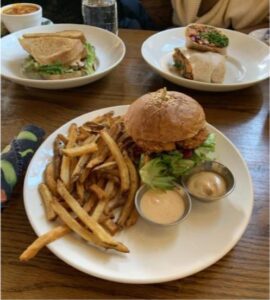
Do you locally source your business’ food?
KM: We source local ingredients seasonally when possible from several local producers. The shorter distance an ingredient has to travel to get here, the fresher it is and the better it tastes. We support growers who use organic practices and this means the food is more nutritious because the soil it grows in is healthier since it’s not bombarded with chemicals.
Do you have advice for people who would like to eat more sustainability or make their business more sustainable?
KM: If anyone is interested in eating more sustainably or operating their business more sustainably there is a wealth of information on the internet regarding advice and resources for
making more sustainable choices. Eat with the season and eat more plants are the two best pieces of advice for making a diet more sustainable. Aim for change, not perfection. Make business decisions by taking all facets of the outcome into consideration, including the health of your customers, co-workers, and environment.
Did you have any role models when you opened Trumpet Blossom Café?
KM: I didn’t have any specific role models or influences when I opened my business. I trusted my instincts, was stubborn enough to do something really risky, and I felt very supported by my community as a whole, and fortunately I still do.
How were you affected by the pandemic?
KM: The pandemic shut my business down completely from mid-March to early May 2020. We had zero dine-in customers for an entire year—May 2020-May 2021. My revenue was cut nearly in half in 2020. Even now, the majority of our sales are still to-go orders. I had to change my menu to accommodate items being put in boxes instead of on plates. My staff changed, my schedule changed, every decision I made was influenced by forces completely out of my control and we had to manage every situation with an undertone of uncertainty which did not exist prior to March 2020. Running a restaurant these past two years has been more stressful and unpredictable than I ever could have imagined. But we’re still here so I guess that’s something. Obviously, we owe our success to the support of our community.
How can members of the Iowa City community better support local businesses like Trumpet Blossom Café as they practice sustainability?
KM: If someone is interested in supporting businesses that practice sustainability they need only call or email with questions before they spend their money there. Ask the people in charge what their sustainability practices are and how they are working to improve any areas where
improvement can be made. Keep in mind that it’s nearly impossible for a small business to be perfect—there are always obstacles and setbacks and owners are constantly having to shift their methods to fit new and changing situations. But it should be pretty clear if they care or not.
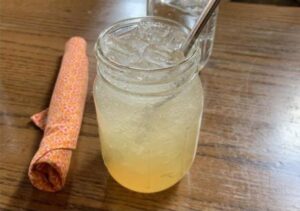
After hearing Chef Meyer’s responses, the line that stood out the most was “Aim for change, not perfection.” Sustainable practices ought to be, well, sustainable, and her advice reflects that sentiment. Trumpet Blossom Café has fought through difficult barriers, and yet continues to thrive in the Iowa City community thanks to its capable owner. Offering a menu of delicious vegan and gluten-free dishes, appetizing sides, and fun drinks, Trumpet Blossom Café provides the perfect local outlet to support in your journey toward more sustainable eating.
